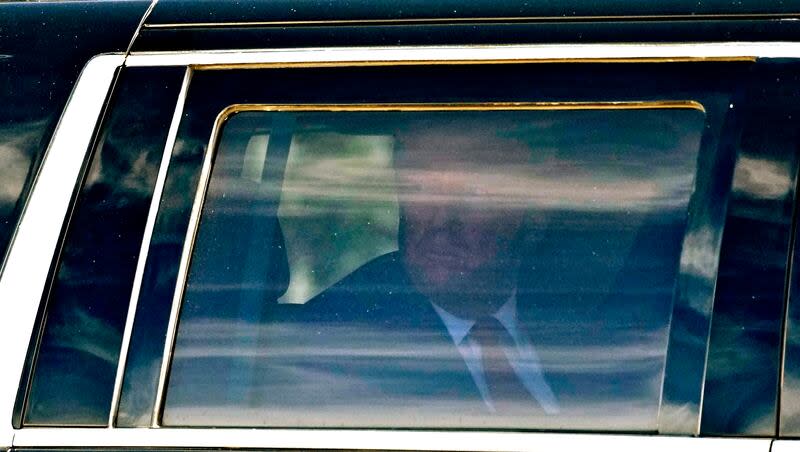Federal judge rejects Trump’s dismissal request in classified documents case

- Oops!Something went wrong.Please try again later.
- Oops!Something went wrong.Please try again later.
- Oops!Something went wrong.Please try again later.
On Thursday, a federal judge denied former President Donald Trump’s request to dismiss the classified documents case against him in Florida.
U.S. District Judge Aileen Cannon’s ruling came after a hearing earlier in the day, during which attorneys on both sides of the case argued over the legitimacy of the case.
“In her order, Judge Cannon acknowledged that Mr. Trump’s lawyers had raised ‘various arguments warranting serious consideration,’ but she added that their concerns about the Espionage Act were better made in ‘connection with jury-instruction briefing,” according to The New York Times.
“Her suggestion that the case could be moving toward dealing with jury issues was the clearest indication she has given so far that it may eventually be headed to trial, though she has yet to set a date,” the New York Times added.
Trump and his legal team argued that the Espionage Act, under which he is charged, contains numerous unresolved legal issues and maintained the stance that this lack of clarity renders the law unconstitutionally vague.
“Trump’s vagueness argument is meritless. Trump is charged with the unauthorized possession and willful retention of national defense information. The statute’s prohibitions are clear,” special counsel Jack Smith said in response, per CBS News.
In court on Thursday
Trump arrived at the Florida courthouse for a hearing on the case against him regarding classified documents found at his Mar-a-Lago estate.
U.S. District Judge Aileen Cannon, who was appointed by Trump when he was president, listened to both the prosecution and defense responses on whether to dismiss the case against Trump.
The case was brought on by Smith, who was also in attendance Thursday, accusing Trump of 40 criminal counts, including being in personal possession of classified government documents after his presidency.
When asked what sets Trump’s case apart from former Vice President and President Joe Biden’s classified document cases, prosecutor Jay Bratt said, “Even with other former presidents, there was never a situation remotely similar to this one,” per Axios.
“Bratt also said that Trump’s argument for dismissing the charges using the Presidential Records Act is “premature,’” Axios added.
Trump’s team argues Presidential Records Act
The Presidential Records Act, enacted by Congress in 1978, ensures that all official government documents must be handed over to the National Archives following a president’s time in office.
The Thursday hearing focused on Trump’s defense team’s interpretation of the act. According to his defense, the law allowed Trump to classify the documents as personal and keep them in his possession after his presidential term.
“President Trump was still the President of the United States when, for example, many of the documents at issue were packed (presumably by the GSA), transported, and delivered to Mar-A-Lago,” a filing from Trump’s attorneys said, per ABC News.
ABC News added, “Defense lawyers have also argued that the law does not permit criminal charges, and that Trump had the final say over the handling of presidential records, rather than officials at the National Archives, where presidential records are stored once the president has left office.”
Trump’s defense attorney, Emil Bove, argued Thursday that the charges against Trump be dismissed altogether. Cannon acknowledged this notion as “premature.”
But, according to Axios, Smith responded to Trump’s attorney by arguing the Presidential Records Act “does not exempt Trump from the criminal law, entitle him to unilaterally declare highly classified presidential records to be personal records, or shield him from criminal investigations — let alone allow him to obstruct a federal investigation with impunity.”
Cannon has not set a trial date for the case as she considers both sides. At a hearing earlier this month, Trump’s team proposed a trial date after the 2024 presidential election, while Smith’s team requested July 8.

